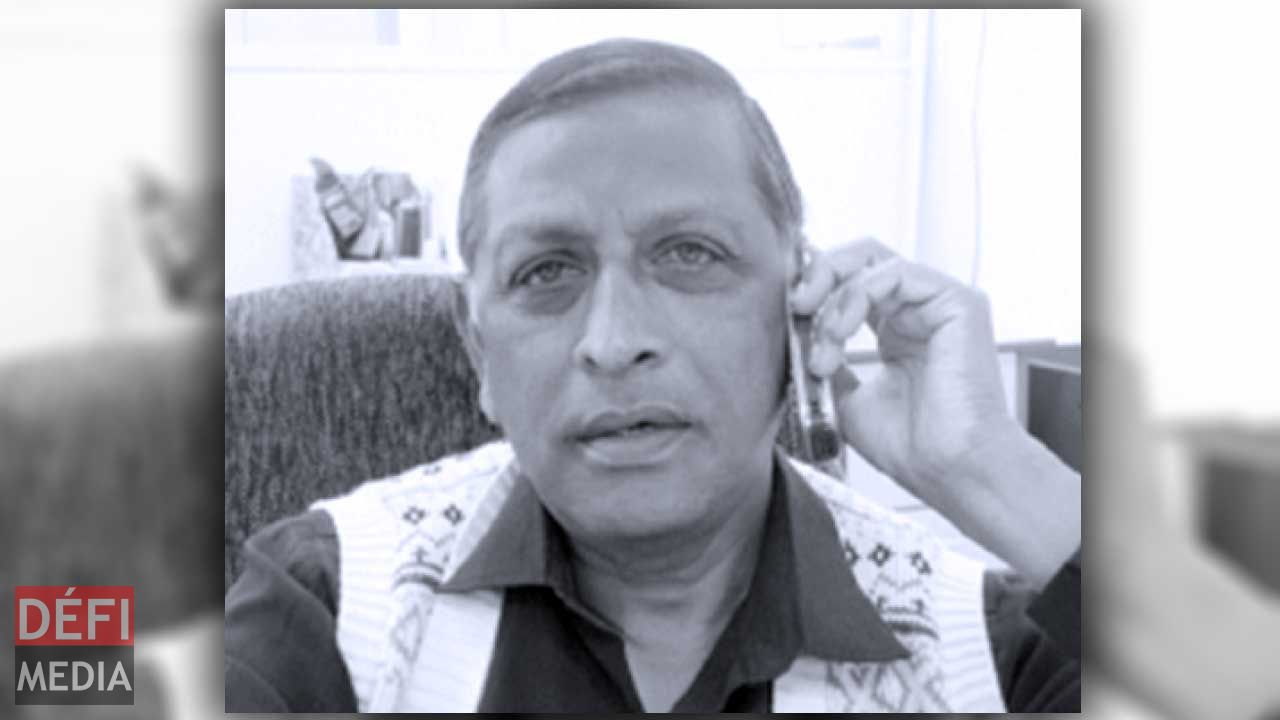
With the passing away of Bhismadev Seebaluck of Dear Shakespeare, the voice and conscience of a whole generation has been silenced. He was a thoroughly cultured person, an intellectual of high calibre, a cheerful soul, blessed with the unmatched generosity of spirit of a true patriot, who cared deeply for his country. His writings are here to remind us of this care and concern, his utter commitment and dedication to this obsession of his, and for which he strove and struggled so hard: Mauritius can be a better place if honesty, dedication and sincerity prevail, and we raise our standards in every sphere of life.
Publicité
His satire spared no one, from people to institutions. It was crystal clear that he didn’t tolerate mediocrity in any shape or form. Time and again, he attacked institutions, those who ran them, our political masters and countless other targets. On occasion, his satire could be Swiftian in its ferocity and vitriol. But more often than not, it had the lightness of touch, and the airy, gentle and sophisticated elegance so reminiscent of Alexander Pope.
In Dear Shakespeare, the butt of his satire was among other issues cronyism, bureaucratic inefficiency and lack of ethics and morality in the way we conduct ourselves and our affairs. He contended that this was why Mauritius will continue stagnating, unless we get our act together and reform accordingly. To this effect, he huffed and puffed, he decried and dismissed, he ranted and railed, he chastised and censured. But there was never any mischief or malice behind his motives. He wished ardently that we mend our ways, that we bury our differences, that we take nation-building seriously, and that we promote a culture based on equality and meritocracy, not partisanship and bigotry. Though he very often focused on Mauritian issues, his writings had a striking universality, because they dealt with topics and issues with which anyone anywhere could identify. Not unlike the bard of Stratford-upon-Avon – whom he so admired and addressed directly in his articles – he had deep insights into the complexity of human nature, our motives, motivations and deeper emotions, and his analysis was always shrewd, perceptive and pertinent. He also shared with Shakespeare a propensity for linguistic virtuosity and exuberance, and this is one of the major elements that made his articles persuasive and effective, and a joy to read.
To us Mauritians, he held a mirror to our frailties and foibles, and we empathized spontaneously with his writings. The manner in which he did it was particularly subtle and convincing. He made each one of his readers feel special, as if he was taking us into his confidence. He not only spoke about us, but to us. He echoed our views, thoughts and feelings, but expressed them so much better than we ever could. He was extremely well-read, and this scholarship shone through his frame of reference which was astonishingly broad. He would quite often use Shakespearean quotes with gusto, and ever so appropriately. At times, he would even adapt or modify them to make or illustrate a particular point, and this was particularly gratifying.
One aspect of his writing which was particularly striking was the tone of his articles. It was always chatty, informal, relaxed and accessible, especially because he used the epistle as a literary form. His wit and his inimitable humour were both infectious and engaging. At times, he could sound patronising, as if chiding a wayward child, but we didn’t mind at all. Of course, he dealt with serious issues like corruption and administrative incompetence, and showed their ill-effects on society. But the witty and entertaining manner in which he did this was truly mystifying, because this somehow allowed him to take the sting out of the harshness of the criticism. He definitely believed that laughter is the best medicine because it makes life more bearable.
Bhismadev had this uncanny knack of using language in original ways, because he had an intuitive grasp of the beauty, power and magic of words. The array of figures of speech used in his writings was phenomenal – puns, metaphors, bathos, oxymorons, you name it—and these not only enriched the quality of his writings, but allowed him to convey his message more forcefully, which essentially was this: we need to develop the right type of manpower and institutions in order to propel this country forward. His reformist aims and objectives were patently clear, but this was achieved, not with high seriousness, but with an ease of manner and approach so characteristic of him.
As the final curtain falls, and he bids us adieu, his own words are the most appropriate in this context: “Now that the time has come to say goodbye, let me leave quietly on tip-toe”. So be it, but his legacy will survive the test of time. His voice will be heard loud and clear, far and wide, and his message will resonate with us for years to come. His writings have provided us with so much to indulge and delight in. I sincerely hope there will be others who will put on the mantle of satirist, and follow in his footsteps with the same fervour and generosity of spirit which distinguished Bhismadev. A Herculean task by any account, since the vacuum that he has left behind will not be that easy to fill! We can but try!
Mahmood Bakarally

Notre service WhatsApp. Vous êtes témoins d`un événement d`actualité ou d`une scène insolite? Envoyez-nous vos photos ou vidéos sur le 5 259 82 00 !





















